- Home
- Diana Palmer
The Rancher's Wedding Page 2
The Rancher's Wedding Read online
Page 2
She heard heavy footsteps coming back, and a quick rap on the door. She opened it.
“Here.” He handed her some jeans and a shirt.
“Thanks,” she said.
He shrugged. “Come out when you’re ready. We’ll throw your wet things into the dryer.”
“Okay.”
She had to put the jeans and shirt over her underwear, which was damp, but she wasn’t about to take it off and put it in a dryer in front of a man she didn’t know. She was painfully shy.
She came out of the bathroom. He called to her from a distant room. She followed the sound of his voice to a sprawling kitchen.
“Drink coffee?” he asked.
“Oh, yes!” she agreed.
“Give me those.” He held out his hand for her clothes. “I’ll stick them in the dryer.”
“Thanks.”
He gave them a cursory look, pursed his lips amusedly at the lack of underthings, and took them to the dryer in still another room. She heard it kick off.
He came back in and poured coffee into two thick white mugs. “Cream, sugar?”
“No,” she replied, seating herself at the small table against the window. Outside, cattle were milling around a feed trough. “I always drink it black and strong. It helps keep me awake when I’m working. . . .” She stopped suddenly. Waitresses didn’t work at night in Benton.
He raised an eyebrow, but he didn’t question the odd comment.
She sipped coffee and sighed. “This is very good.”
“It’s Colombian,” he replied. “I’m partial to it.”
“So am I.”
He sipped his coffee and stared at his odd houseguest. He wondered how old she was. She had that radiant, perfect complexion that was common in young women, but she didn’t look like a teenager, despite her slender figure.
She lifted both eyebrows at his obvious appraisal.
“I was wondering how old you were,” he said, smiling.
“Oh. I’m twenty-four.”
He cocked his head. “You look younger.”
She smiled. Her blue eyes almost radiated warmth. “Everybody says that.”
She wondered how old he was. His hair was black and thick, conventionally cut. His face was strong, with an imposing nose and chiseled mouth and high cheekbones. His skin had a faint olive tone.
He chuckled. “Sizing me up, too? I have Comanche ancestors.”
“I thought Comanches lived in Texas and Oklahoma,” she began.
“They do. I was born south of Fort Worth, Texas. That’s where my mother was from. My folks moved back here when I was ten. The ranch was started by my great-grandfather. My grandfather and my father had some sort of blowup and Dad and Mom left when I was on the way. I never knew what happened. Dad lived on the ranch, but he didn’t own it. My grandfather held the purse strings until he died, and even then, he left the ranch to me instead of my dad.”
“That must have been hard on your father.”
“It was. They never got along.” He smiled. “I missed Texas when we came here. It’s very different.”
“I love Texas,” she confessed. “Especially up around Dallas. There’s a place called Dinosaur Valley. . . .”
“With thousands of bones,” he added with a glimmer in his eyes. “Yes. I’ve been there. My father was trained as a paleontologist. He taught at a college in Dallas.”
She caught her breath. “I’d love to study that,” she said. She laughed self-consciously. “I only had two years of college,” she confessed. “I minored in Spanish. We have a large Hispanic population in Georgia. I thought of teaching. But I couldn’t decide, so I just took core courses.”
“I majored in business,” he said. “You need to know economics to run a ranch profitably.” He didn’t add that the ranch wasn’t his main source of income. His fortune was the result of an inheritance from his grandfather that included several million dollars plus thousands of acres here near Benton, Colorado, and a thriving Black Angus purebred ranch. He’d parlayed that fortune into a much larger fortune by investing in oil stocks and buying up failing exploration companies and refineries. His inheritance plus his business sense had made him a multimillionaire.
It didn’t show that he was rich. Right now, he was glad. This little violet was good company. He had a feeling that she’d have run right out the door if he’d shown up in a stretch limo wearing designer clothes and a Rolex—all of which he had.
“I’ve never been around ranches,” she confessed, staring out the window. “We have big farms in Georgia, but not so many ranches, especially not in the Atlanta suburbs. We’re very metropolitan.”
“But you know about chicken farms,” he teased.
She laughed self-consciously. “Well, yes. I love animals.”
“So do I,” he added. “We use old-timey methods around here. The livestock are treated like part of the family. They’re all purebred. We breed for certain traits that they’ll pass down to their progeny. We don’t run beef cattle,” he added when she looked perplexed.
“You don’t?” she asked, surprised.
He shrugged. “Hard to kill something you raised from a baby,” he said. “I’m partial to fish and chicken. I don’t eat a lot of beef.”
She was fascinated. It showed.
He laughed. “Not that I mind a well-cooked steak,” he added. “As long as it’s not one of my prize Angus.”
“There are always pictures in the local cattle journal of cattle sales.”
“We have a production sale here in February,” he told her. “It’s a big deal. We entertain a lot of out-of-state buyers. We feed them great barbecue and hope they’ll spend plenty of money.”
“You sell off the little cows, then?” she asked.
He chuckled at her terminology. “Yearlings, mostly,” he said. “Some open heifers, some pregnant ones, a few bulls.”
She was out of her depth. “It sounds very complicated.”
“Only to an Eastern tenderfoot,” he teased gently.
She smiled back, a little shyly, and sipped her coffee.
“I like your house,” she said after a brief and vaguely uncomfortable silence. “It looks just like I’d expect a western ranch house to look.”
He frowned slightly. “Never been out west?”
She shook her head. “No. Mom and Dad lived in New York and I went up to visit a lot, but I’ve only seen the states back in the East.”
“Does your father still live there?”
“No.” She sipped coffee, wincing at her blunt reply. “He came out here because he had a cousin who worked at the local equipment store,” she added hurriedly. “His cousin had already moved on, but he gave him a good reference. Daddy’s worked there for about a month. Like I have, at the restaurant.”
“Big-city people,” he mused, studying her. “The culture shock must be extreme.”
She flushed and fumbled with her coffee cup. “It is, a little, I guess. I got used to traffic noises and sirens in Atlanta. The small house Dad and I rent is close to a railroad, so that’s nice at night.” She laughed. “It’s like home.” She didn’t add that she’d moved into a luxurious house on the lake north of Atlanta, to get away from those traffic noises. She missed the lake.
“What did you do in Atlanta? Another waitressing job?”
She couldn’t tell him that. It might lead to embarrassing questions about why she’d left such a lucrative position to get a minimum wage job out in Colorado. “I did feature stories for a newspaper,” she said finally. It wasn’t so far from the truth. She’d started out as a newspaper reporter after college, working her way up to news editor before her father introduced her to some people in New York. She’d ended up doing screenplays, a much more profitable career. Gone now. It was gone, like the life she’d had.
He wondered why she looked so stricken. “Newspaper jobs must be thin on the ground these days,” he remarked. “Almost everything is digital now. I get my news fix on the Internet.”
S
he smiled. “So do I. But the local paper is very nice. I like the features about old-fashioned ranch work, and the recipe page.”
He smiled back. “Do you cook?”
“Oh, yes,” she replied. “I’m partial to French cuisine, because of the sauces, but I like Tex-Mex, too. Anything spicy.” She sighed. “I used to have a gourmet herb patch that I babied all year. I had raised beds, so I had herbs at Christmas to add to my recipes.” Her face was sad as she recalled the past. Those had been good days, when her mother was still alive. Before the fame and then the tragedy that had taken her mother’s life and sent Cassie and her father running far away from the notoriety.
“I have an herb patch of my own, but it’s in a glassed greenhouse,” he remarked. “Hard to keep little things alive out here in the winter. It can be brutal in the mountains.”
“I’ve heard that,” she replied. “They said one year you had a foot of snow.”
He chuckled. “Most years we have a foot of snow,” he mused. “Sometimes six feet.”
She gasped. “But how do you drive in that?”
“You don’t,” he said. “Not until the snowplows come, at least. On the ranch, we have heavy equipment that we can use to clear a path to the road.” He shook his head. “It’s hard on the cattle. It’s a lot of work to keep them alive. We have lean-tos in the pastures and a big barn and corrals where we can bring the pregnant cows and heifers up to get out of the worst of the weather.”
She liked that. She smiled. “I never thought of ranchers being kind to cattle,” she said. “I mean, we hear about slaughterhouses and—”
“We don’t eat purebreds,” he interrupted, and his eyes twinkled. “Too expensive.”
She laughed. “I guess so.” She searched his face. “Do you have pets?”
He sighed. “Too many,” he replied. “We have cattle dogs—border collies—that help with roundup. They’re not really pets, but I keep a couple of Siberian huskies and we have cats in the barn. They keep the rodent population down.”
“The cats, you mean?”
He grinned. “The huskies, mostly,” he corrected. “Best mousers on the place. The cats, I’m told, are jealous of that ability.”
“You talk to cats,” she teased.
“All the time. I talk to myself, mostly,” he added with a chuckle. “Bad habit.”
“Only if you answer yourself,” she replied.
He sighed and leaned back in the chair with his coffee cup. “I was engaged,” he said after a minute. “Until someone overheard her bragging to her friends about how she’d marry me and then go live in a city and get away from this run-down wreck of a ranch.”
She winced. “I’m so sorry,” she said. “That must have hurt your pride.”
He was surprised at her compassion. He was also suspicious. Marge had been very sympathetic at first, too, but it was all an act. A means to an end. He was warier now than he’d been before.
“It is a little run-down, I guess,” he conceded after a minute. He grimaced. “I’ve spent a lot of time drinking. Too much.” He didn’t add why. He also didn’t add that he’d let the ranch and the business slide while he got over the tragedies in his life that had dumped him in Marge’s lap. Marge had been a newer, worse tragedy, if that was even possible. He was usually a better judge of character, but he’d been lonely and Marge had played him. That was on Cary, whose sense of mischief was getting old. He’d introduced JL to Marge, and the mutual attraction had been immediate. He’d missed Marge. It took a lot of getting over, and not only because she’d left him.
“My dad drank for a while,” she said unexpectedly, staring into her coffee cup. “It was hard to convince him to stop.”
He frowned. “Why did he drink?” he asked bluntly.
She sighed. “My mother died,” she said, wrapping up an anguished time into three quiet words.
“I see. Had they been married long?”
“Thirty years,” she replied. “They’d given up hope that they’d have kids when I came along,” she added with a sad smile. “I wasn’t born until five years after they married.”
“Marriage.” He made a face. “Not a future I’ve ever seen for myself.” And it hadn’t been, until Marge caught him in a weak moment. As a rule, women came and went in his life. For years, they’d been permissible hors d’oeuvres. Now, after Marge, he’d lost interest. He never wanted another painful experience like the one he’d had with her.
“Don’t you like children?” she asked innocently.
His face closed up. There was something dark and disturbing in his expression for a few seconds. He got up. “If you’re ready, I’ll run you into town.”
“Oh, but, I can call my father,” she began, flushing. “I’ve been too much trouble already.”
“Not so much.” He picked up her empty cup and put it, with his, into the sink. He picked up his keys. “Let’s go.”
She followed him out to the SUV. Only then did she notice that the ranch house needed a coat of paint and repairs on the front walk. The fences looked as if they’d once been white, but the paint was peeling off them now. The rain seemed to emphasize the neglect around her. She wondered why he hadn’t made repairs, and decided that he probably didn’t have the money. The SUV he drove was nice, but it wasn’t the newest model and he was probably making payments on it. Certainly, his clothes—a shirt with a frayed collar and jeans that were torn where they draped over scuffed, worn cowboy boots—didn’t reflect any great wealth.
“Your ranch is nice,” she said as they drove away. She wondered once again how a poor rancher could afford to run purebred livestock. Perhaps he had a partner somewhere who contributed money.
“It keeps me running,” he said with an absent smile.
They rode in a companionable silence. Cassie was surprised at the comfort she felt, sitting beside him. It was an odd thing to feel. He was handsome, in his way, and she liked his deep, velvety voice. But he wasn’t the sort of man she was used to at all. Her male friends back east, and there had never been a serious one, were obsessed with the gym and proper diet and they preferred an evening at the theater or the symphony orchestra. None of them would have considered life on a cattle ranch.
“Where?” he asked when they reached Benton.
She caught her breath. “Sorry, I was lost in thought. It’s on Third Street, just off Main, about a block from the Quick Stop.”
He chuckled. “The old Barrett place,” he replied. “Yes, I know it. Jed Barrett lived there all his life. When he died, there was no family, so the house went on the market to pay his funeral expenses. A local businessman owns it. He didn’t want to sell it because of the property it sits on, so he rented it out while he decided what to put on the acreage.”
“You mean, like a ranch?”
“I mean, like a subdivision,” he mused. “Or apartment houses.”
“Oh, dear,” she said with a long sigh. “I loved it because it was so remote,” she confessed. “Lots of room to walk and think, and there’s a little creek out back. . . .”
He grimaced. He liked lonely places to walk, too. “It will take him some time to work that out,” he added comfortingly. “He’s overseas right now, taking care of some business in Australia. He owns a huge cattle station there.”
“He’s Australian?” she asked, surprised.
He chuckled. “His father was. Rance was born here in Colorado, but his father had properties all over Australia and South America. Rance has managers for all of them, but he likes the hands-on approach. He says it keeps his employees on their toes if he walks in unexpectedly from time to time.”
“I see,” she replied.
“He’s a nice enough guy,” he said easily. “A little abrasive, but it’s understandable. He’s had some issues over the years.” He glanced at her. “You didn’t meet him, when you rented the house?”
“Dad did,” she said. “I was at work. We’d been living in the local motel.” She said that because there was only one motel in B
enton. It was nice enough, but paying for two rooms indefinitely had threatened to wipe out their combined savings. Her father had heard about the place at work and called Rance Barkley at just the right time to obtain it as a rental.
“Expensive, living in motels,” he remarked.
She nodded. “Very.”
“Why Benton?” he asked curiously as he pulled onto her street.
“Because Dad’s cousin lived here,” she sighed. “It seemed as good a place as any to start over.”
“I guess the city got too much for you,” he teased.
She smiled back. “Yes. It did. For both of us. Honestly, we wanted to live someplace where we didn’t have so many memories of my mother. Besides, Benton is nice.”
“Nice, if you don’t like nightlife,” he chuckled. “They roll up the sidewalks every night at six sharp.”
“That doesn’t bother me,” she replied. “I like the peace and quiet.” She didn’t add that she’d gotten used to it on the lake.
He laughed. “Good thing. We don’t have much excitement around here.”
“That suits me very well.”
He pulled into the long driveway and pulled up next to an old pickup truck sitting in front of the little white frame house. The property was surrounded by pastureland that ran to the horizon in the shadow of the mountains.
“I always liked this place,” he remarked.
“It’s very pretty,” she agreed. She grimaced. “Look, I’m sorry about the picket sign. . . .”
“I’ll tear a strip off Cary and we’ll be even. Don’t worry about it.”
“Thanks. And thanks for the coffee and the ride.” She opened the door and jumped down, pausing to get her wet, faded sign off the floorboard in the back seat.
“Stay warm,” he said.
She smiled. “Drive safely,” she replied, and closed the passenger door before she saw his bemused expression.
He waved and drove off.
She propped her sign against the wall and opened the door.
Her father, tall and thin and graying, looked up from the sofa, where he was reading a book. “Back so soon?”

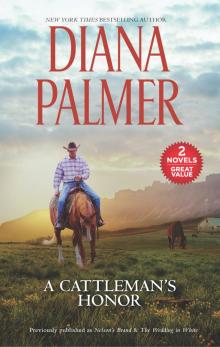 A Cattleman's Honor
A Cattleman's Honor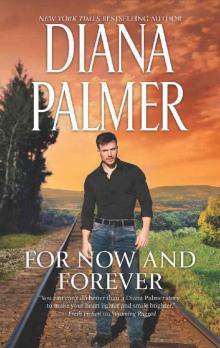 For Now and Forever
For Now and Forever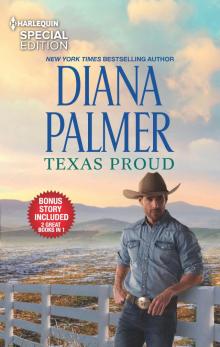 Texas Proud and Circle of Gold
Texas Proud and Circle of Gold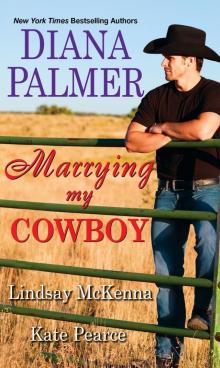 Marrying My Cowboy
Marrying My Cowboy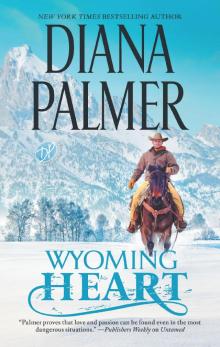 Wyoming Heart
Wyoming Heart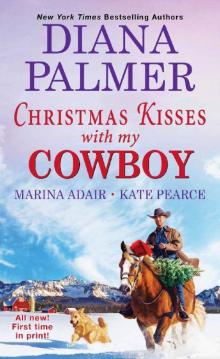 Christmas Kisses with My Cowboy
Christmas Kisses with My Cowboy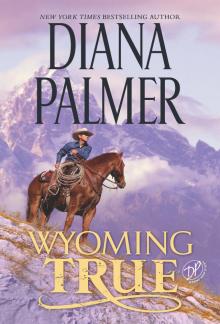 Wyoming True
Wyoming True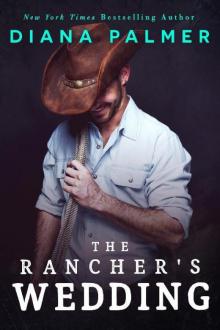 The Rancher's Wedding
The Rancher's Wedding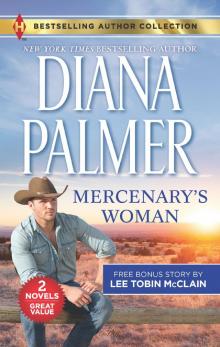 Mercenary's Woman ; Outlawed!
Mercenary's Woman ; Outlawed!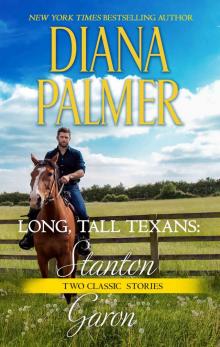 Long, Tall Texans: Stanton ; Long, Tall Texans: Garon
Long, Tall Texans: Stanton ; Long, Tall Texans: Garon Lawless
Lawless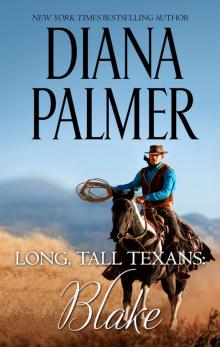 Blake
Blake Escapade
Escapade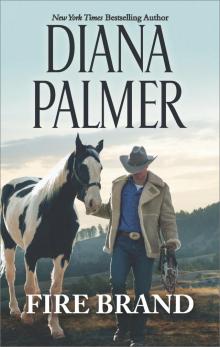 Fire Brand
Fire Brand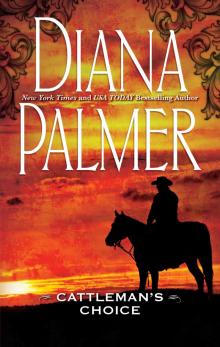 Cattleman's Choice
Cattleman's Choice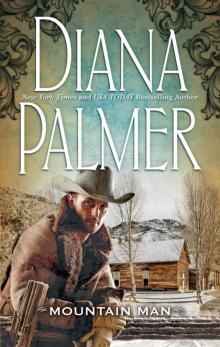 Mountain Man
Mountain Man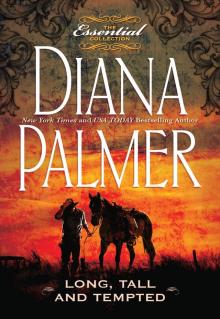 Long, Tall and Tempted
Long, Tall and Tempted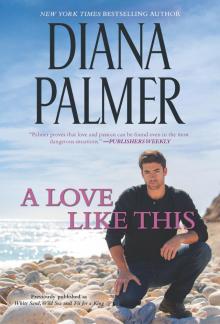 A Love Like This
A Love Like This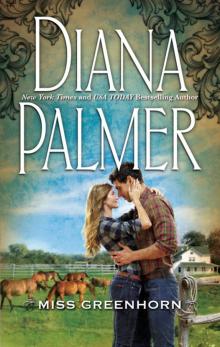 Miss Greenhorn
Miss Greenhorn Magnolia
Magnolia Lord of the Desert
Lord of the Desert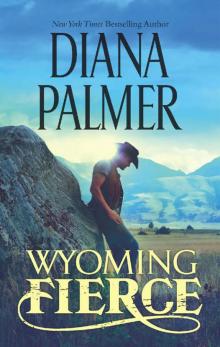 Wyoming Fierce
Wyoming Fierce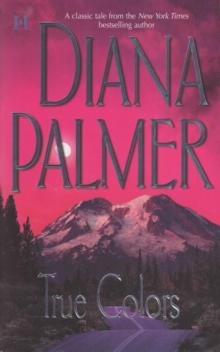 True Colors
True Colors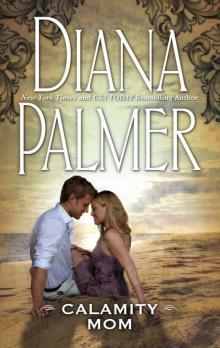 Calamity Mom
Calamity Mom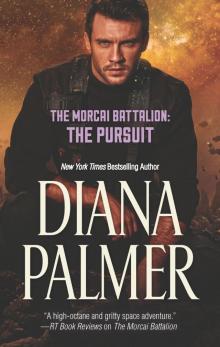 The Pursuit
The Pursuit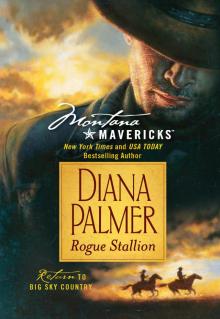 Rogue Stallion
Rogue Stallion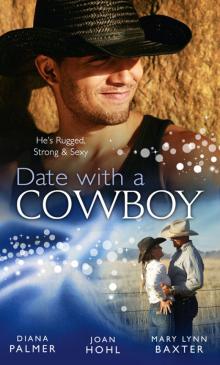 Date with a Cowboy
Date with a Cowboy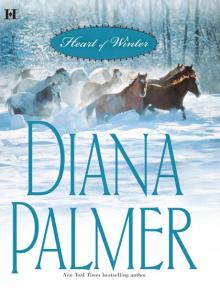 Heart of Winter
Heart of Winter Friends and Lovers
Friends and Lovers Love on Trial
Love on Trial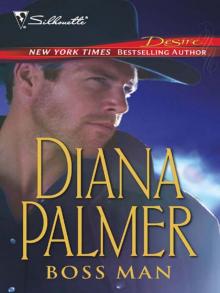 Boss Man
Boss Man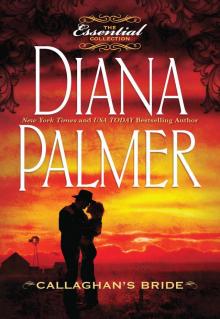 Callaghan's Bride
Callaghan's Bride Before Sunrise
Before Sunrise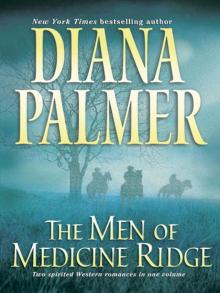 The Men of Medicine Ridge
The Men of Medicine Ridge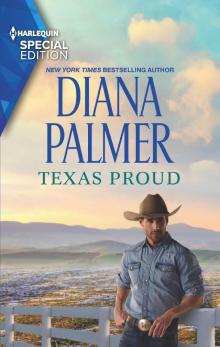 Texas Proud
Texas Proud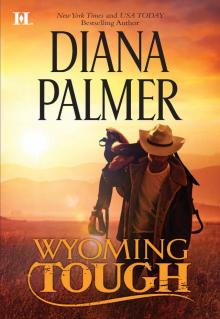 Wyoming Tough
Wyoming Tough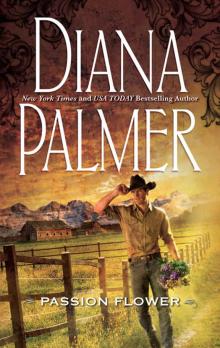 Passion Flower
Passion Flower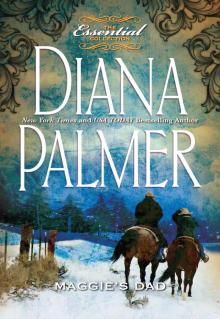 Maggie's Dad
Maggie's Dad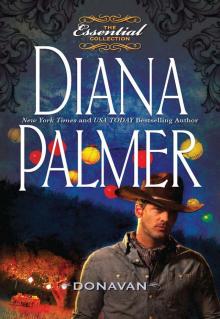 Donavan
Donavan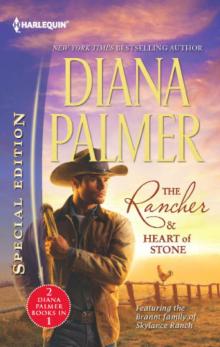 The Rancher & Heart of Stone
The Rancher & Heart of Stone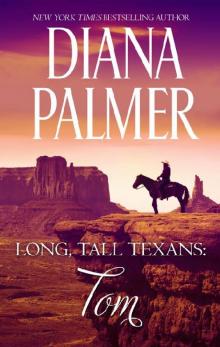 Long, Tall Texans: Tom
Long, Tall Texans: Tom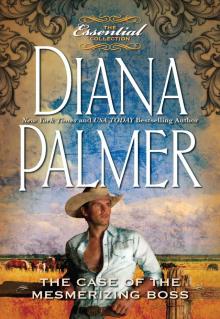 The Case of the Mesmerizing Boss
The Case of the Mesmerizing Boss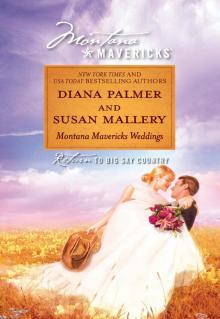 Montana Mavericks Weddings
Montana Mavericks Weddings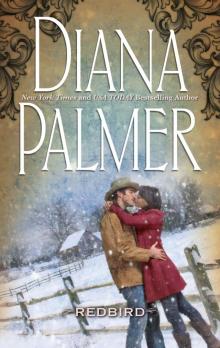 Redbird
Redbird Wyoming Strong
Wyoming Strong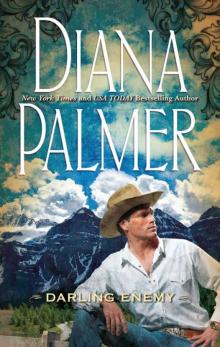 Darling Enemy
Darling Enemy Love by Proxy
Love by Proxy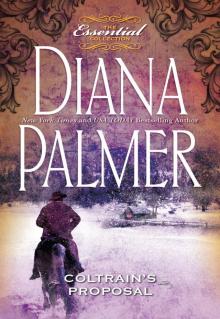 Coltrain's Proposal
Coltrain's Proposal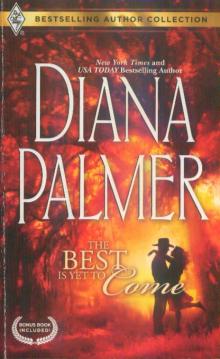 The Best Is Yet to Come & Maternity Bride
The Best Is Yet to Come & Maternity Bride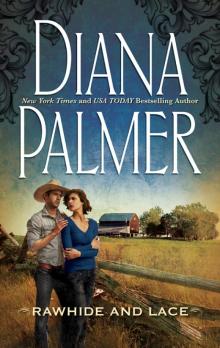 Rawhide and Lace
Rawhide and Lace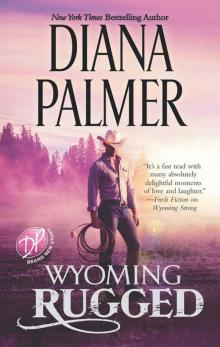 Wyoming Rugged
Wyoming Rugged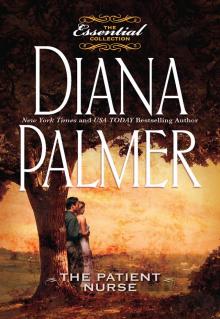 Patient Nurse
Patient Nurse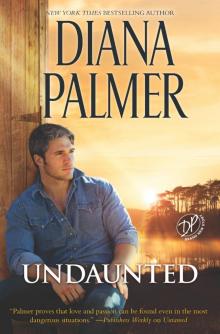 Undaunted
Undaunted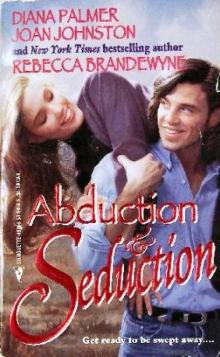 Long Tall Texans Series Book 13 - Redbird
Long Tall Texans Series Book 13 - Redbird Outsider
Outsider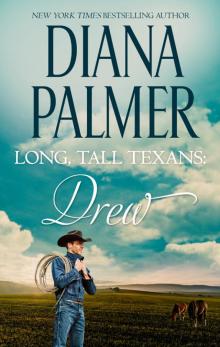 Long, Tall Texans: Drew
Long, Tall Texans: Drew Long, Tall Texans--Christopher
Long, Tall Texans--Christopher Merciless
Merciless A Match Made Under the Mistletoe
A Match Made Under the Mistletoe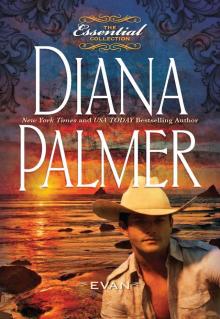 Evan
Evan Hunter
Hunter Now and Forever
Now and Forever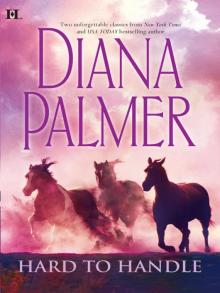 Hard to Handle
Hard to Handle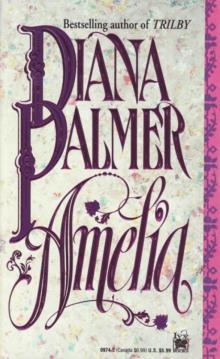 Amelia
Amelia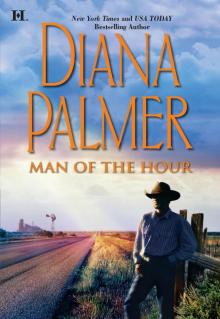 Man of the Hour
Man of the Hour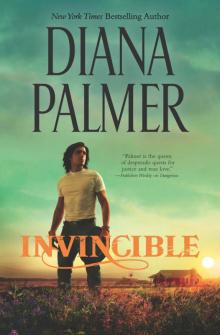 Invincible
Invincible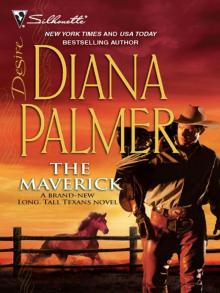 The Maverick
The Maverick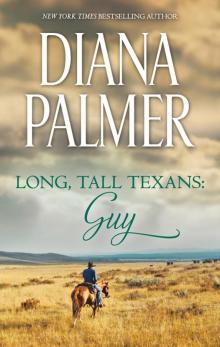 Long, Tall Texans--Guy
Long, Tall Texans--Guy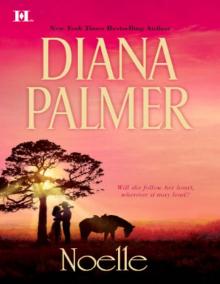 Noelle
Noelle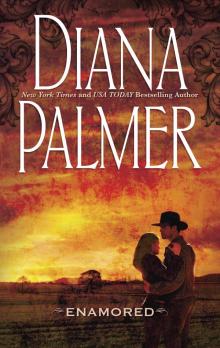 Enamored
Enamored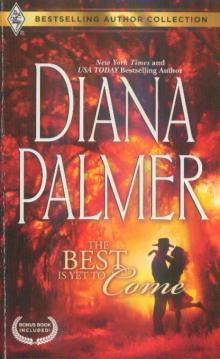 The Best Is Yet to Come
The Best Is Yet to Come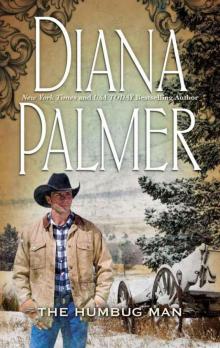 The Humbug Man
The Humbug Man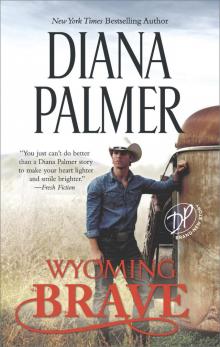 Wyoming Brave
Wyoming Brave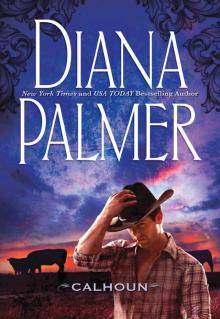 Calhoun
Calhoun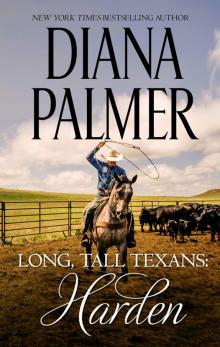 Long, Tall Texans--Harden
Long, Tall Texans--Harden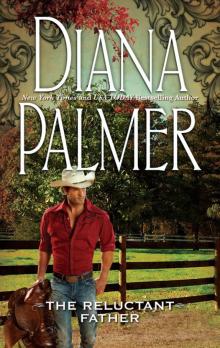 The Reluctant Father
The Reluctant Father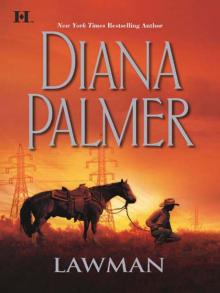 Lawman
Lawman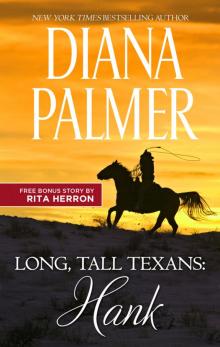 Long, Tall Texans: Hank & Ultimate Cowboy ; Long, Tall Texans: Hank
Long, Tall Texans: Hank & Ultimate Cowboy ; Long, Tall Texans: Hank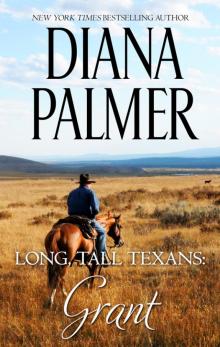 Grant
Grant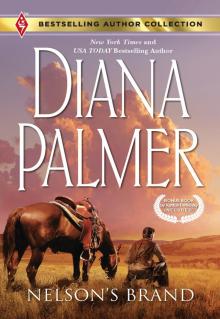 Nelson's Brand
Nelson's Brand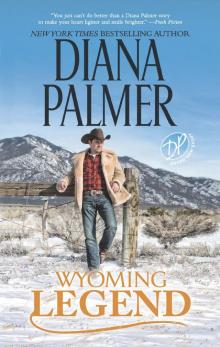 Wyoming Legend
Wyoming Legend Diamond Spur
Diamond Spur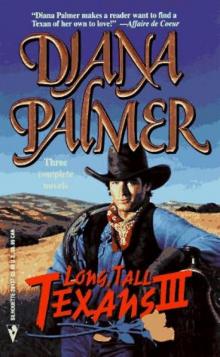 That Burke Man
That Burke Man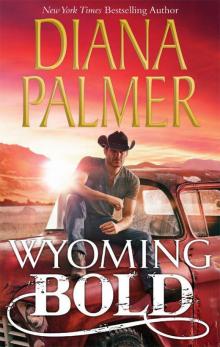 Wyoming Bold (Mills & Boon M&B)
Wyoming Bold (Mills & Boon M&B) Heartless
Heartless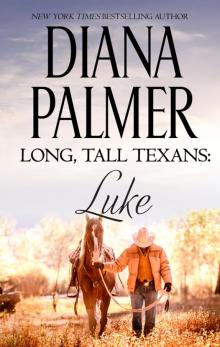 Long, Tall Texans--Luke
Long, Tall Texans--Luke To Have and to Hold
To Have and to Hold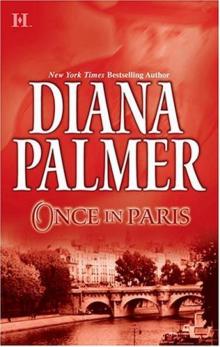 Once in Paris
Once in Paris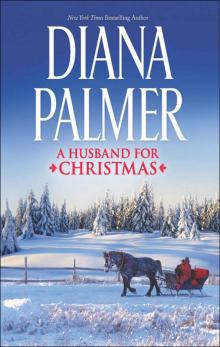 A Husband for Christmas: Snow KissesLionhearted
A Husband for Christmas: Snow KissesLionhearted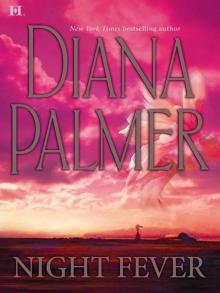 Night Fever
Night Fever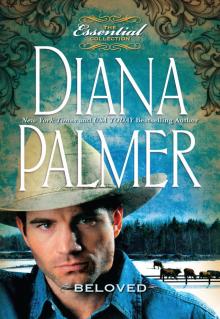 Beloved
Beloved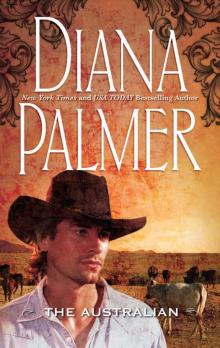 The Australian
The Australian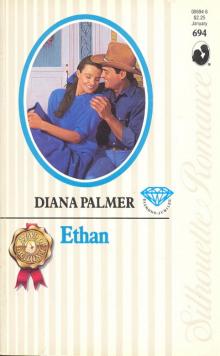 Ethan
Ethan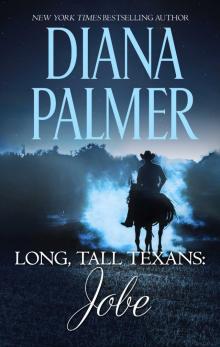 Long, Tall Texans: Jobe
Long, Tall Texans: Jobe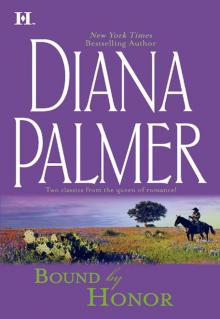 Bound by Honor: Mercenary's WomanThe Winter Soldier
Bound by Honor: Mercenary's WomanThe Winter Soldier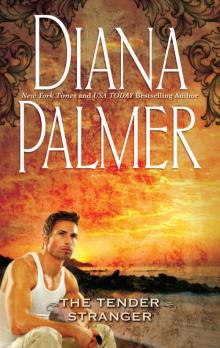 Tender Stranger
Tender Stranger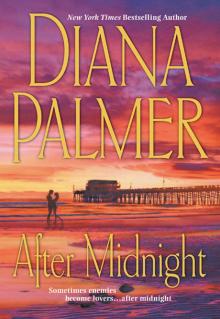 After Midnight
After Midnight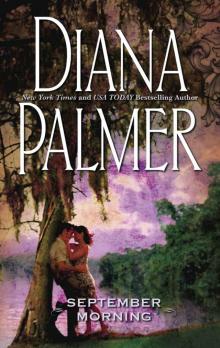 September Morning
September Morning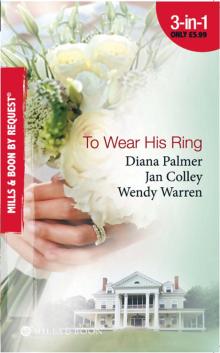 To Wear His Ring
To Wear His Ring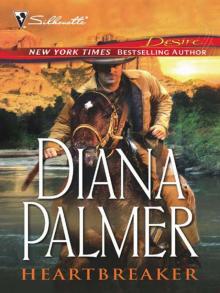 Heartbreaker
Heartbreaker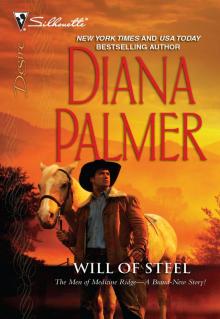 Will of Steel
Will of Steel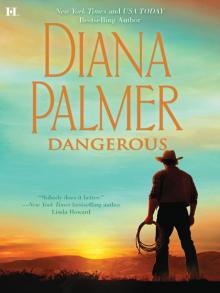 Dangerous
Dangerous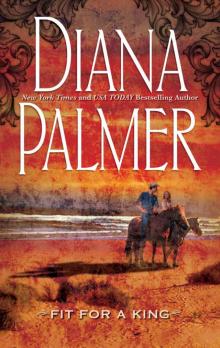 Fit for a King
Fit for a King Diamond in the Rough
Diamond in the Rough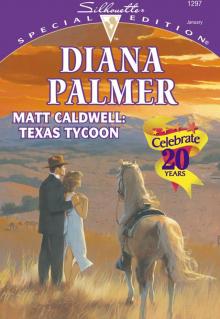 Matt Caldwell: Texas Tycoon
Matt Caldwell: Texas Tycoon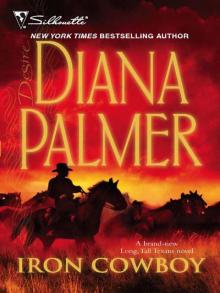 Iron Cowboy
Iron Cowboy Fire And Ice
Fire And Ice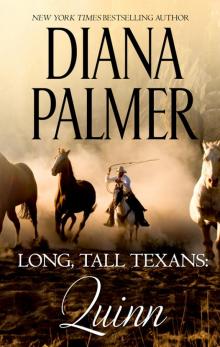 Long, Tall Texans--Quinn--A Single Dad Western Romance
Long, Tall Texans--Quinn--A Single Dad Western Romance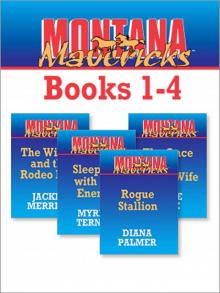 Montana Mavericks, Books 1-4
Montana Mavericks, Books 1-4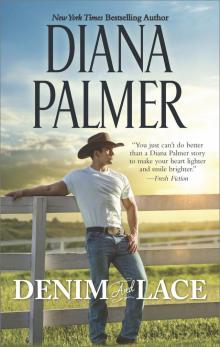 Denim and Lace
Denim and Lace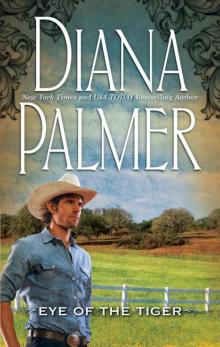 Eye of the Tiger
Eye of the Tiger The Princess Bride
The Princess Bride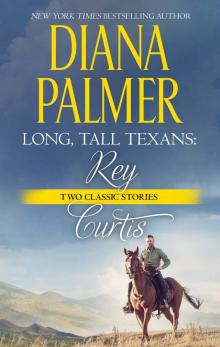 Long, Tall Texans: Rey ; Long, Tall Texans: Curtis ; A Man of Means ; Garden Cop
Long, Tall Texans: Rey ; Long, Tall Texans: Curtis ; A Man of Means ; Garden Cop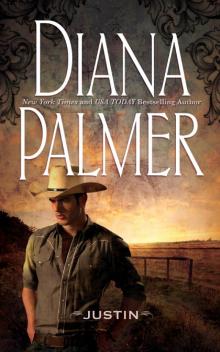 Justin
Justin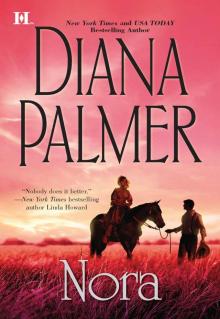 Nora
Nora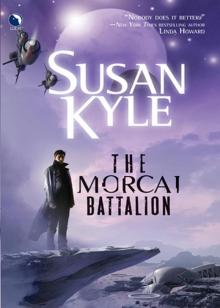 The Morcai Battalion
The Morcai Battalion Heart of Stone
Heart of Stone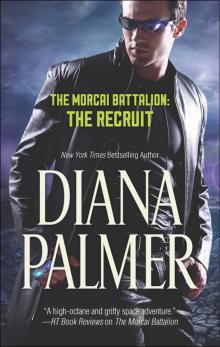 The Morcai Battalion: The Recruit
The Morcai Battalion: The Recruit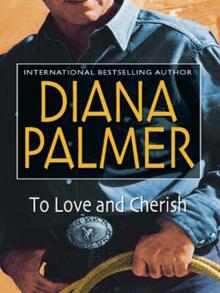 To Love and Cherish
To Love and Cherish Invictus
Invictus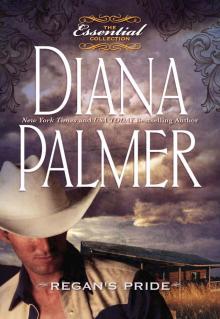 Regan's Pride
Regan's Pride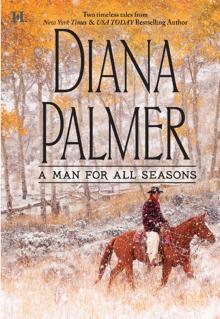 A Man for All Seasons
A Man for All Seasons Sweet Enemy
Sweet Enemy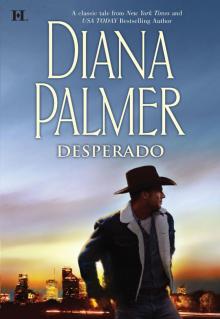 Desperado
Desperado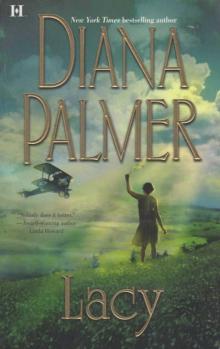 Lacy
Lacy The Winter Man
The Winter Man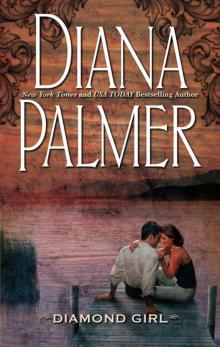 Diamond Girl
Diamond Girl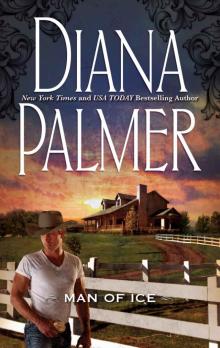 Man of Ice
Man of Ice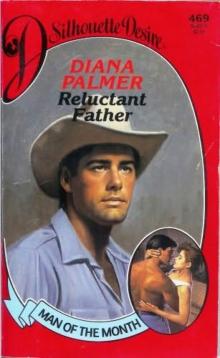 Reluctant Father
Reluctant Father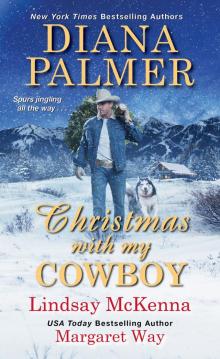 Christmas with My Cowboy
Christmas with My Cowboy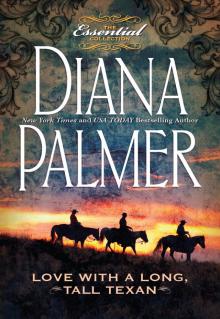 Love with a Long, Tall Texan
Love with a Long, Tall Texan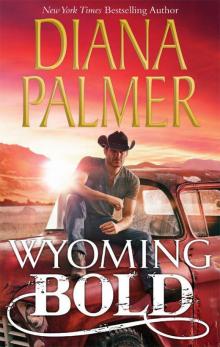 Wyoming Bold wm-3
Wyoming Bold wm-3 King's Ransom
King's Ransom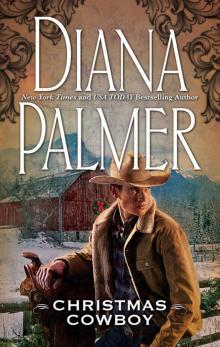 Christmas Cowboy
Christmas Cowboy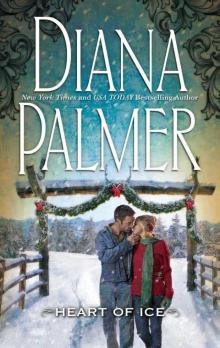 Heart of Ice
Heart of Ice Fearless
Fearless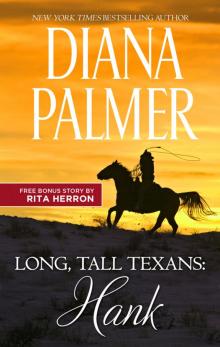 Long, Tall Texans_Hank
Long, Tall Texans_Hank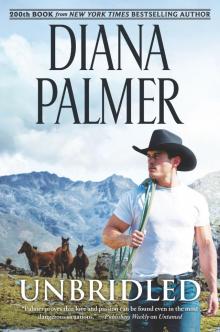 Unbridled
Unbridled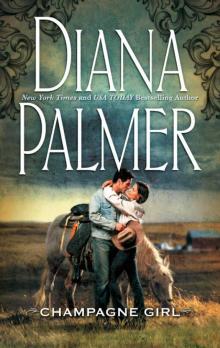 Champagne Girl
Champagne Girl The Greatest Gift
The Greatest Gift Storm Over the Lake
Storm Over the Lake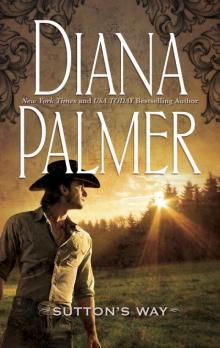 Sutton's Way
Sutton's Way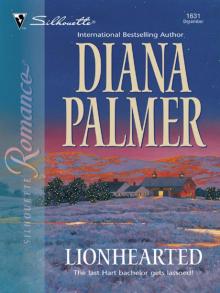 Lionhearted
Lionhearted Renegade
Renegade Betrayed by Love
Betrayed by Love Dream's End
Dream's End All That Glitters
All That Glitters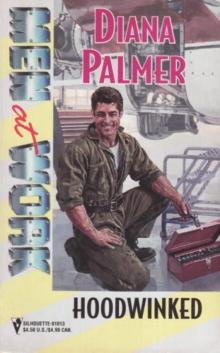 Hoodwinked
Hoodwinked Soldier of Fortune
Soldier of Fortune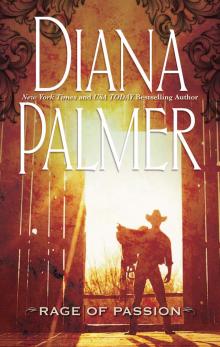 Rage of Passion
Rage of Passion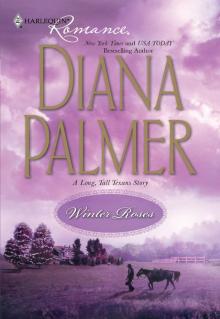 Winter Roses
Winter Roses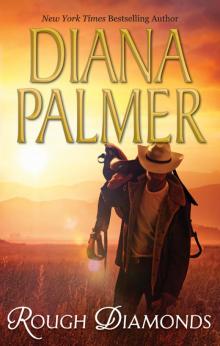 Rough Diamonds: Wyoming ToughDiamond in the Rough
Rough Diamonds: Wyoming ToughDiamond in the Rough Protector
Protector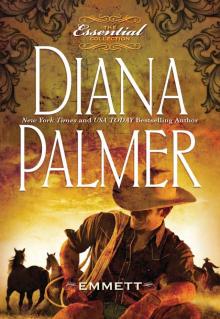 Emmett
Emmett True Blue
True Blue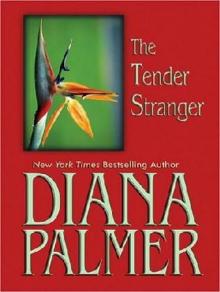 The Tender Stranger
The Tender Stranger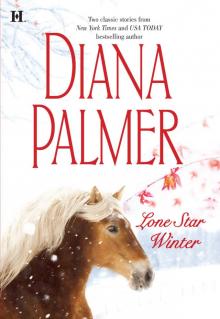 Lone Star Winter
Lone Star Winter Man in Control
Man in Control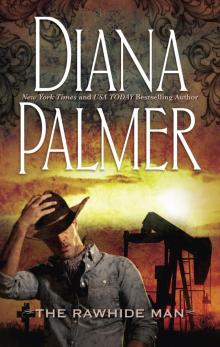 The Rawhide Man
The Rawhide Man Untamed
Untamed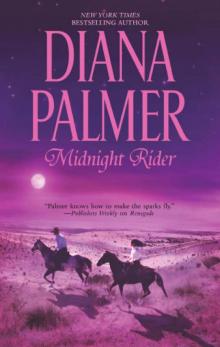 Midnight Rider
Midnight Rider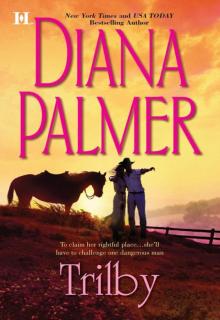 Trilby
Trilby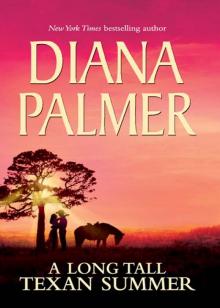 A Long Tall Texan Summer
A Long Tall Texan Summer Tangled Destinies
Tangled Destinies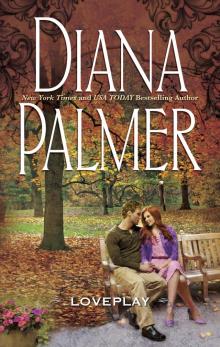 LovePlay
LovePlay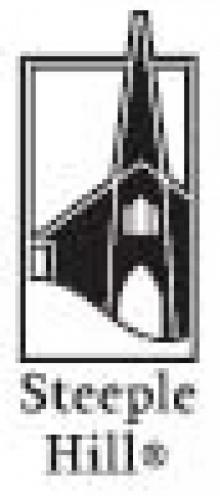 Blind Promises
Blind Promises Carrera's Bride
Carrera's Bride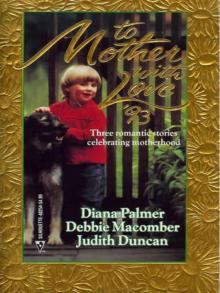 Calamity Mum
Calamity Mum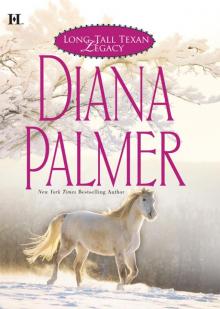 Long, Tall Texan Legacy
Long, Tall Texan Legacy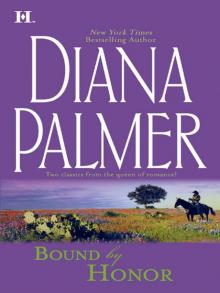 Bound by Honor
Bound by Honor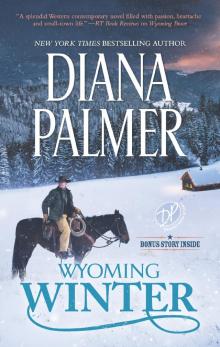 Wyoming Winter--A Small-Town Christmas Romance
Wyoming Winter--A Small-Town Christmas Romance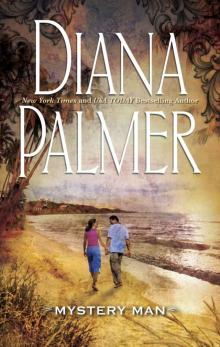 Mystery Man
Mystery Man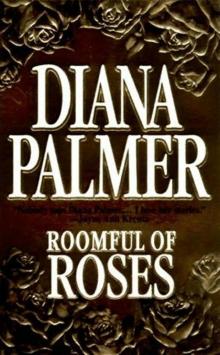 Roomful of Roses
Roomful of Roses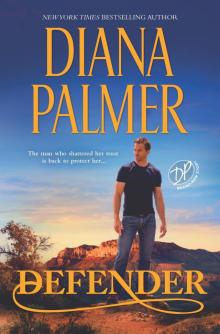 Defender
Defender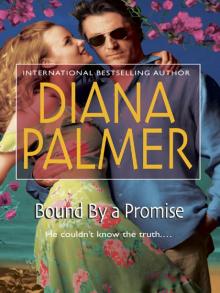 Bound by a Promise
Bound by a Promise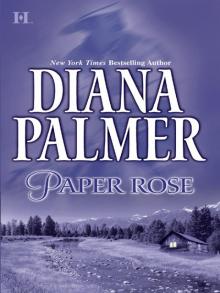 Paper Rose
Paper Rose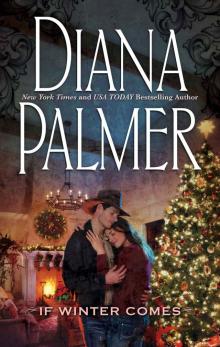 If Winter Comes
If Winter Comes Circle of Gold
Circle of Gold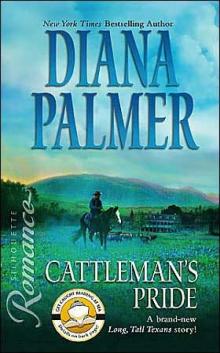 Cattleman's Pride
Cattleman's Pride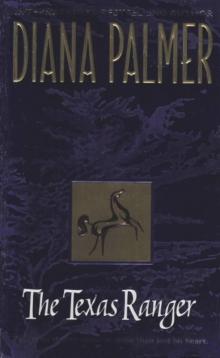 The Texas Ranger
The Texas Ranger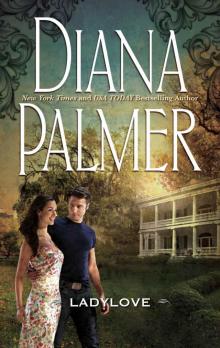 Lady Love
Lady Love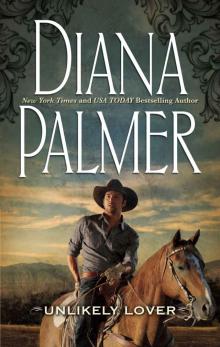 Unlikely Lover
Unlikely Lover A Man of Means
A Man of Means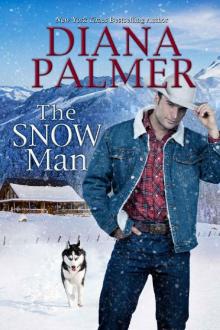 The Snow Man
The Snow Man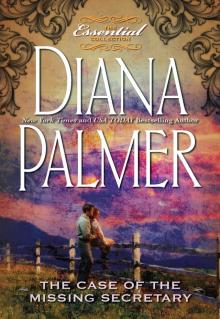 The Case of the Missing Secretary
The Case of the Missing Secretary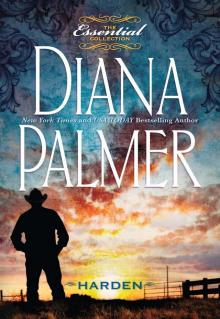 Harden
Harden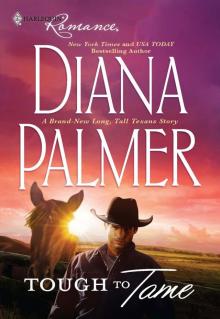 Tough to Tame
Tough to Tame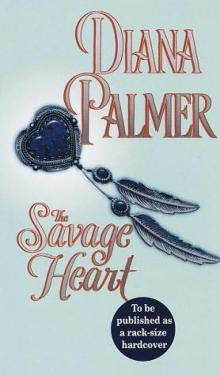 The Savage Heart
The Savage Heart